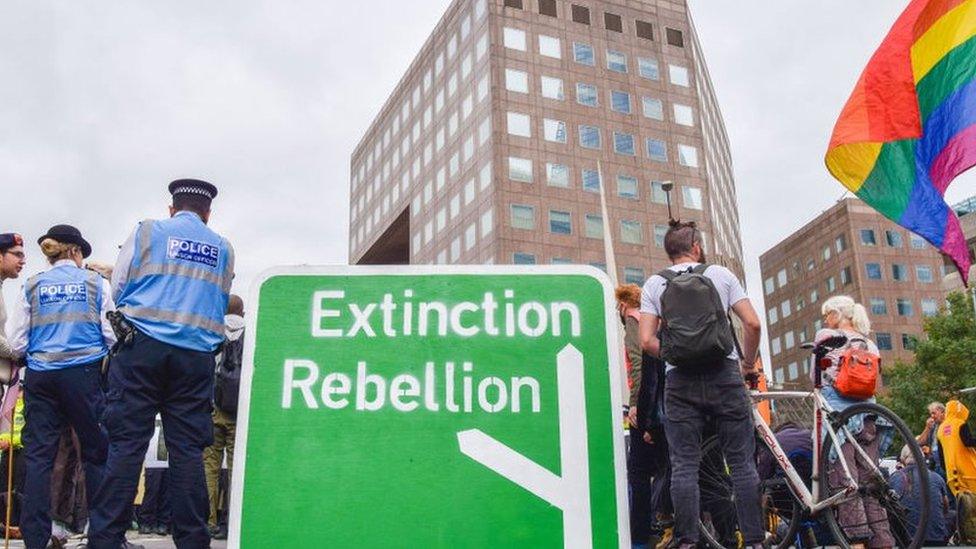Public Order Bill: Peers defeat plans to curb protest disruption
- Published
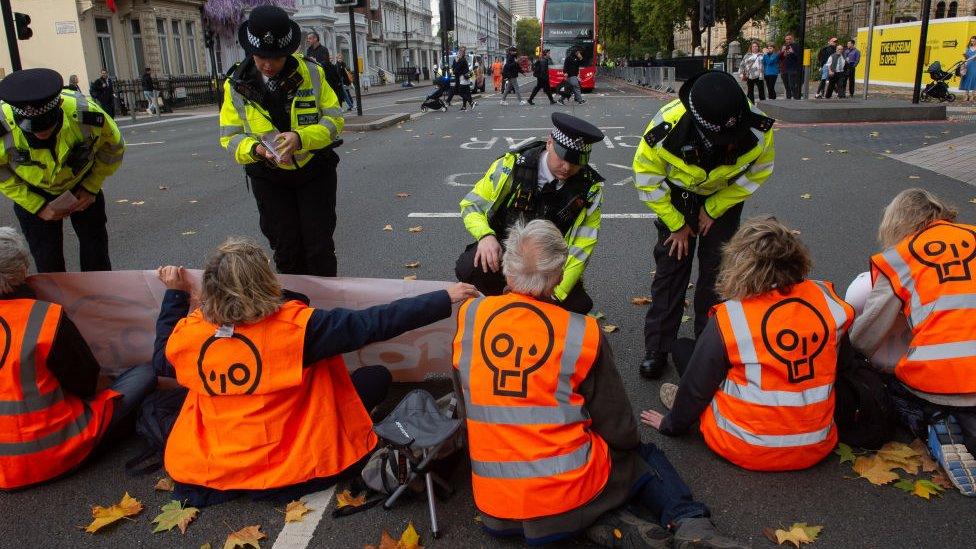
Environmental activists Just Stop Oil are among those to use tactics such as blocking roads
The House of Lords has overturned plans to clamp down on protest marches that cause too much disruption.
The government had proposed giving police powers to stop protesters using tactics such as blocking roads and slow marching before disruption takes place.
Critics had described proposals as an attack on the right to protest.
Peers removed the plans from the Public Order Bill on Tuesday. Ministers cannot re-add the policy when the bill returns to the House of Commons.
The bill was introduced to crack down on disruptive protests by groups such as environmental activists Just Stop Oil, Insulate Britain and Extinction Rebellion, which have used tactics including blocking roads.
It covers England and Wales and is currently being scrutinised by the House of Lords. Any changes at this stage could be blocked by peers before they become law.
No 10 wants to introduce measures that would mean police would not have to wait for disruption to take place to shut down a protest.
It says forces should also be able to consider the "total impact" of a series of protests by the same group, rather than seeing them as standalone incidents.
Under this existing legislation, if the police want to restrict a protest, they generally have to show it may result in "serious public disorder, serious damage to property or serious disruption to the life of the community".
But peers rejected the plans by 254 votes to 240. The proposals were only introduced to the Bill in the Lords and so cannot return during parliamentary ping-pong as it was not in the original legislation that went before the Commons.
The House of Lords also voted down a government proposal that would allow police officers to search people without suspicion in a designated area to look for items that could be used in offences such as "locking on". Peers rejected the measure by 284 votes to 209
A frontbench bid to prevent protesting "an issue of current debate" being used as a lawful excuse for blocking a road was also voted down by 248 votes to 239. Ministers cannot re-add this policy either when the bill returns to the Commons.
Peers went on to defy the government again in backing safeguards for journalists in the Bill by 283 votes to 192, majority 91.
Martha Spurrier, director of human rights group Liberty, previously described the proposals as "a desperate attempt to shut down any route for ordinary people to make their voices heard".
She said allowing the police to shut down protests before any disruption had taken place "sets a dangerous precedent".
The Bill builds on the controversial Police, Crime, Sentencing and Courts Act, which passed last year and was criticised by some groups for introducing curbs on the right to protest.
Related topics
- Published16 January 2023
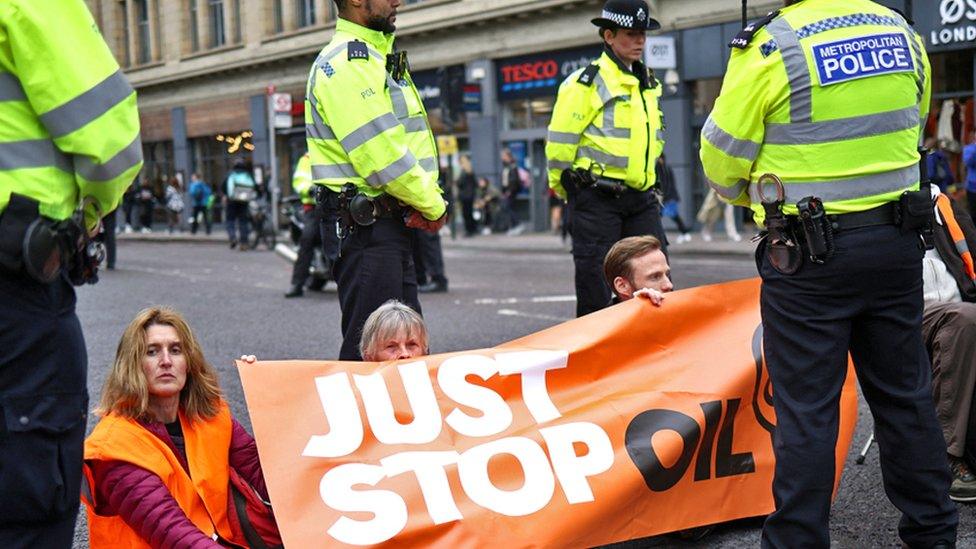
- Published16 October 2022
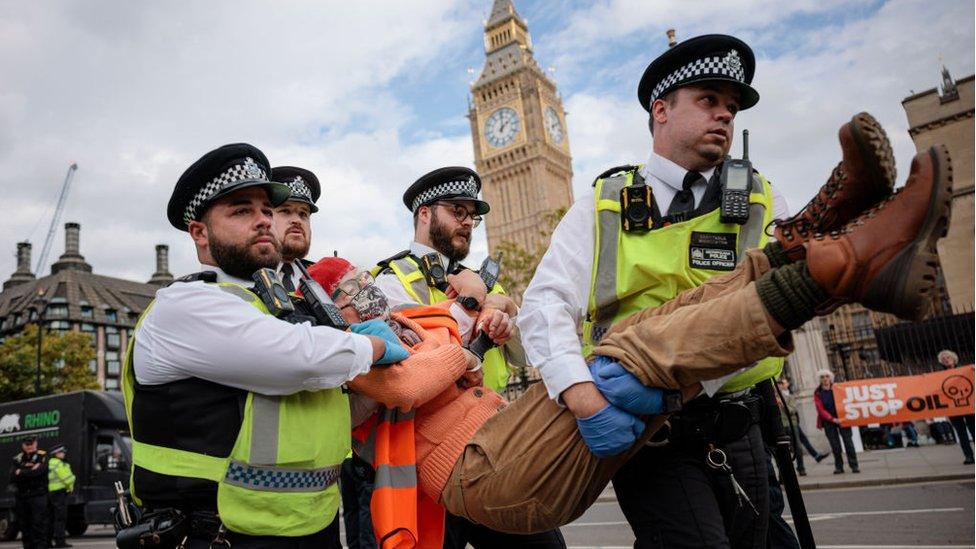
- Published11 November 2022
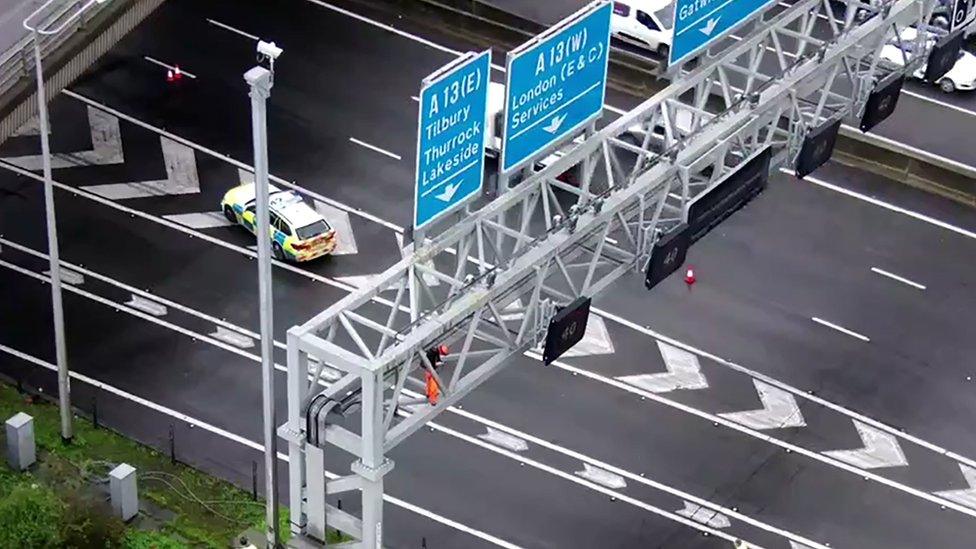
- Published19 June 2024
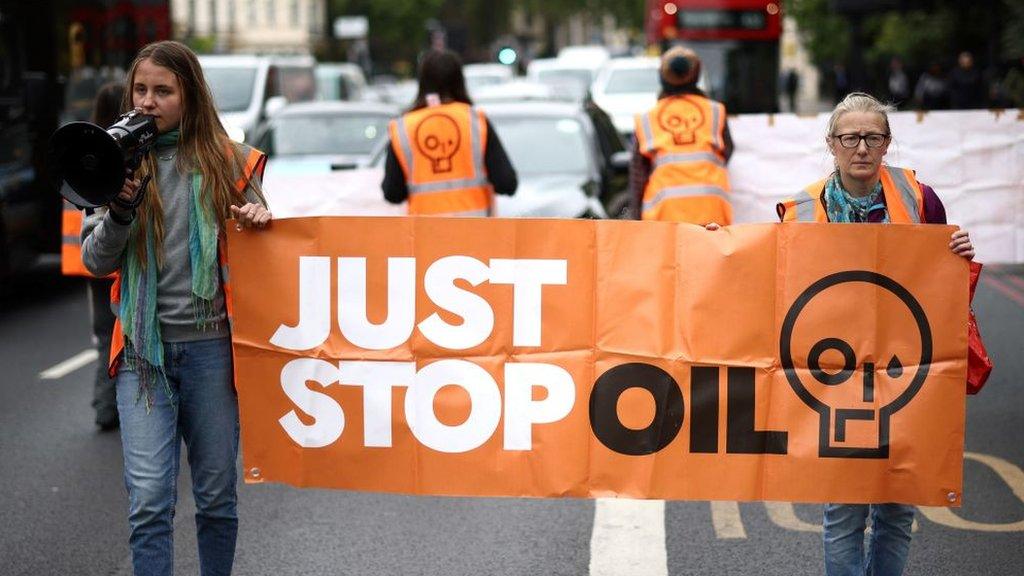
- Published14 April 2022
